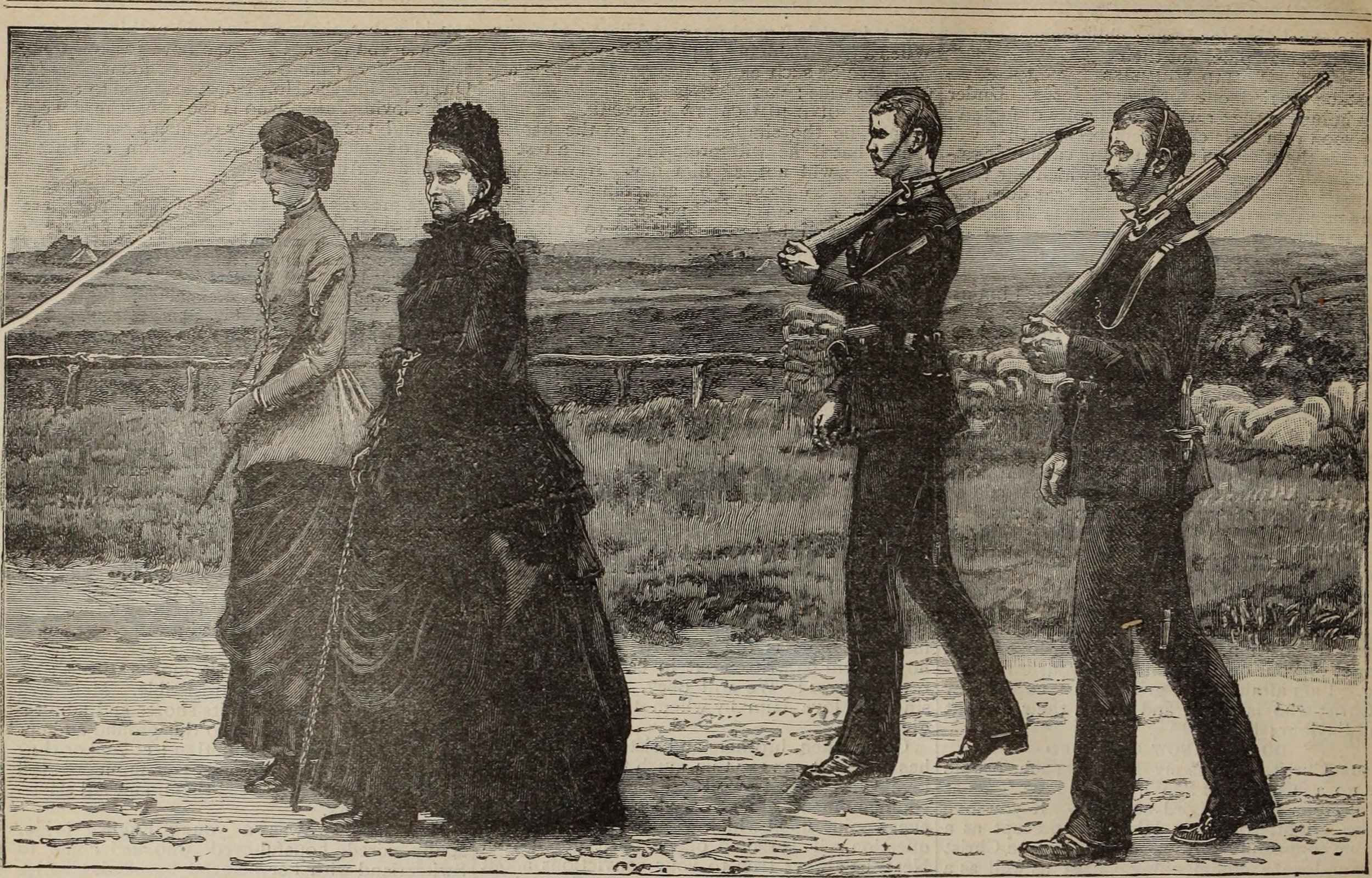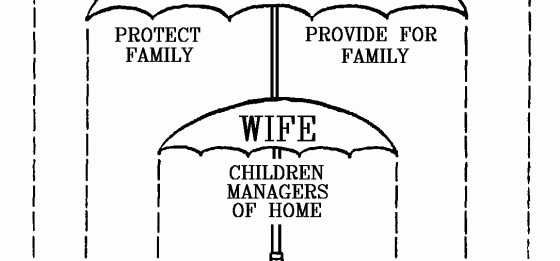Gender: Jesus ended hierarchy
Summary
Part 1 in a series on Jesus and gender: Nate and Tim discuss some prerequisites to looking at New Testament texts pertaining to gender. Jesus explicitly taught that his disciples were to follow his example and abandon all sense of status, power and hierarchy. This was Christianity 101 to the apostles and early church and therefore any interpretation of the gender passages that today seem so offensive to women must acknowledge this overarching Christian ethic. If Jesus said there weren’t even supposed to be positions of status in the church, and Paul believed every Christian was to lay down their power over others, how could the New Testament possibly “teach” that men are supposed to have authority and women are supposed to submit?
Transcription
Nate: Alright, welcome back to Almost Heretical! We teased this show and this series last week by doing this fake episode thing that was only fifteen minutes long. And if you look, it was exactly fifteen minutes long, you’re welcome! Took me a couple minutes to get it to exactly fifteen minutes and I’m really happy about that. But we teased this show that we want to do and this show that we want to do and so this is that series, you’re in the right place! If you didn’t listen to that last one, you probably don’t need to, it’s probably fine if you just start here. So we’re going to be talking about gender and gender roles and the Bible and Paul and all this stuff, because we think it’s really, really important, and I just wanted to say right off the top before we get into this. For those of you are going to agree with what we’re saying and think this direction, I just really hope this is refreshing and encouraging for you to hear, because I know there are a lot of voices out there that are using the Bible to say the opposite of this, and it gets tiring, it gets frustrating, it gets, it just starts to wear on you after a while. So I hope this is encouraging and refreshing for you and helps to give the Bible back to you. And for those of you who are not here and are kind of where we are coming from and the direction we used to teach and lead the church in, I just hope that you can come to this with an open mind and an open heart and be willing to have your mind and your heart stretched and maybe see things that you didn’t see before. So now let’s start the series and Tim, I’m going to ask you, what are we talking about and where are we going?
Tim: So I think the way we’re going to organize this is there are basically six key passages specifically related to gender that fuel the debate over women and how gender in the New Testament. We’re going to treat those one at a time and do six episodes, one on each of those passages and look at options for interpretation. But before we do that, right now, we’re going to spend an episode on bigger picture, zoom back, look at some big picture ways of approaching the New Testament and big picture ideas that should be dominating interpretation and often aren’t dominating it. And specifically the biggest one I want to talk about is how one of the hermeneutical guidelines—
Nate: So, hermeneutical just means how you read the Bible and what decisions you make in interpretation as you read, right?
Tim: Right. Yeah, and part of the case we’ll make here is that so much of this debate has hinged on some egregious hermeneutical decisions and methodology that, some of the people out there teaching and doing Bible scholarship and promoting ideas are some of the strongest proponents for good hermeneutics, and yet they’re breaking many of their own rules when they go to interpret passages on women. So one of those that I want to focus on right now is consistency and dealing with contradictions. So basically, there’s a general hermeneutical principle that first you should interpret the tricky questionable texts, ones that everybody’s sitting around the room scratching their head going, “What does this mean?” You should interpret those passages by the plainer, more obvious, more plain-sense passages. And whatever you know for certain, especially within Paul’s writing, whatever you know Paul definitely thinks over here in Romans should help influence how you think Paul is thinking somewhere else like in 1 Timothy. And on top of that, the broader texts, texts that are more general and generic, where someone like Paul is giving a more zoomed-out, broad brushstroke theology, should have priority over how we interpret really contextualized, highly specific, highly case-specific particular texts like the letter 1 Timothy. So one thing we’ll just point out now and then we’ll get into the details later is that the way gender has been treated is the exact opposite has been done. And basically, the biggest ideas of Paul’s theology and some of the primary foundations and basics of Christian theology that Paul’s working out everywhere in his epistles have been basically eliminated and ignored based on how people have interpreted the letter of 1 Timothy. And where it seems like Paul is telling women that they should be in positions of submission, even though it’s highly debated, what has largely happened is people have taken that interpretation and then filtered the entire rest of the New Testament through that interpretation. And so what I want to spend this episode doing is showing how Paul has a consistent theology of power that’s based on the foundational ethic of Christian relinquishing of power and self-sacrifice, that before we get into any of the specific texts, we can just think big picture about gender and see that the complementarian view that there is a natural God-ordained difference in the authority of men and women simply is inconsistent and contradicting to the entire rest of Paul’s theology.
Nate: Okay, so you’re saying that in places like Romans which is maybe more true to what Paul actually thinks and is his deeper, stronger, better argument for everything he thinks, you’re saying we need to use that to then go and interpret something like 1 and 2 Timothy, and we’ll be able to understand those couple verses that are used to build this whole case basically against women in leadership, we’ll be able to understand those in light of what Paul actually meant, right?
Tim: Yeah, exactly. Well, first, to remind everybody, there’s a ton of scholarship out there, probably lots of stuff you have read, can read, on both egalitarian and complementarian sides of this whole debate, but what I think is the best book in biblical scholarship out there is Paul and Gender by Cynthia Long Westfall. So a lot of the stuff we’ll be doing is either directly or indirectly coming from her work or is an idea that she has already dealt with, so for the more in depth, detailed stuff go read her book, and I just want to give her all the credit that is due. So one of her points, she makes the Romans - 1 Timothy comparison, she says Romans is explicitly, Paul writes, written to a church that Paul does not know. He has not been to Rome, he does not know these people individually, and it’s the longest of Paul’s epistles. There’s a reason why Romans is treated as the magnum opus in Paul’s writings. It’s because it’s the most generic. He doesn’t know all the nitty gritty intimate details of what the specific arguments and debates and issues going onwere. He knows some, but only from hearsay basically, and so what you get in Romans feels the most like Paul sitting down and writing theology for theology’s sake. Whereas in the letters to Timothy, he specifically told Timothy, “I need you to stay in Ephesus, because in Ephesus there’s this particular issue going on of false teachings which have something to do with myths and wives’ tales potentially related to weird versions of a creation story circulating among predominantly the women in the church, and so I need you to stay in Ephesus and deal with that particular issue.” And then they have private correspondence going back and forth talking about how to address that particular issue, and we’re just reading Paul’s side of that mail, and probably not all of his correspondence.
Nate: So it’s like the difference between reading someone’s sermon and reading one side of someone’s email to a guy.
Tim: Exactly, exactly. So what I want to do is jump even further and not even just look at Romans, but look at what anybody in Paul’s day, if they had either had a copy of the gospels or just heard oral circulation of the gospels and the stories of Jesus and the teachings of Jesus and the ministry of Jesus, what anyone in Paul’s day, including Paul and Peter and the apostles, interpreted as the basic foundation of what it meant to be the church and to follow Jesus, and explore what that is and see that Paul everywhere is working this idea out, this basic building block of Christianity, which all has to do with power and status, and that you can see in everything he’s doing that he’s working out this ethic within the church, and that that ethic is the opposite of the complementarian view of gender differentiation between men and women. So big picture, before we even get into just Romans versus Timothy, I just want to look at Paul’s theology of power and see where he got it and give a little snapshot of how the epistles are actually working out a theology of power that simply doesn’t allow for the complementarian view of women.
Nate: Alright, let’s do it.
[transitional music]
Tim: Okay, so Nate, your job is to keep this short and tight. I have hundreds of pages of notes on this stuff. It’s something I’ve wanted to write on and something I’m super passionate about. So trying to summarize the New Testament and power. And if you guys want more in depth notes, feel free to email us. But you remember the line where Jesus says, it’s in all the synoptic gospels, but you basically have a slightly different story. In Mark, James and John come up to Jesus and they start asking Him about who’s going to have status, basically, in Jesus’ kingdom. A similar story is told in Matthew, but in Matthew it’s actually their mom. Do you remember? Comes to Jesus and starts petitioning on behalf of her sons to be highest ranking in Jesus’ group. Basically the idea is, Jesus is going to inherit the kingdom, and they’re fighting for status within that kingdom. And that’s also told in Luke. And Jesus’ response is
“You know that the rulers of the gentiles lord it over them, and their high officials exercise authority over them. Not so with you. Instead, whoever wants to become great among you must be your servant, and whoever wants to be first must be your slave. Just as the Son of Man did not come to be served but to serve and to give His life as a ransom for many.”
Now that basic idea gets repeated at least twice in each of the synoptic gospels, and actually a third time in Matthew where, in Matthew there’s the extra scene too where Jesus brings the little kid to Him and holds up a child as this scene that He’s making and says like children are the bottom of the totem pole, they have zero status in adult world, whoever wants to be the greatest must descend the social hierarchy to become like one of these children. So He just uses another example. Instead of slave, He uses another example of a member of the lower status in society and He literally grabs a child to make that point. But then the whole idea of the greatest becoming the servant gets repeated a second time in each one of the synoptic gospels. In Luke, this story’s happening at the last supper, at Passover, right before Jesus dies. It is the foundational ethical teaching for how the people are actually supposed to live when Jesus is gone. And then Luke adds this other story that is getting at Jesus’ reversal of what we’ll talk about in a little bit, is the Greco-Roman patronage system, which was basically how social status and social hierarchy was organized, because they’re at a table at dinner, and it says,
When He noticed how the guests [Tim: who are His disciples] picked the places of honor at the table, He told this parable: “When someone invites you to a wedding feast, do not take the place of honor, for a person more distinguished than you may have been invited. If so the host who invited both of you will come and say to you, ‘Give this person your seat.’ Then humiliated, you will have to take the least important place. But when you’re invited, take the lowest place so that when your host comes, he will say to you, ‘Friend, move up to a better place.’ Then you will be honored in the presence of all the other guests. For all those who exalt themselves will be humbled, and those who humble themselves will be exalted.”
Nate: Yeah, so this seems like Jesus 101, right? Where the last is first and the least are lifted up, the way you move up in the kingdom is by moving down. That just seems like pretty standard Jesus 101. Are you saying Paul also believes this?
Tim: Yes, exactly. So there are some other pieces of Jesus’ explicit teaching. They’re worth mentioning real quick and then we’ll jump into Paul. The first is that this idea, so where Jesus right there says, “For all those who exalt themselves will be humbled, and those who humble themselves will be exalted,” that’s a theme in the Old Testament. That what God was doing, trying to do throughout the world, throughout history, was to level the playing to create equity and justice by cutting down the powerful and exalting those who have been disempowered and weak, often called the humble or the gentle. That’s what the Beatitudes are. You know when Jesus stands there and says, “Blessed are these people. Blessed are these people. Blessed are these people.” The point is that this great leveling of the playing field, the exaltation of those who have not been exalted within the culture, within the world, that God’s work of lifting those people up to positions of status is actually happening here now around Jesus. And if you remember, there’s a section where Jesus actually, in Matthew, explicitly forbids there even being roles that have anything to do with hierarchical status differentiation amongst His disciples. He says,
“But you are not to be called, ‘Rabbi,’ for you have one teacher and you are all brothers. And do not call anyone on earth, ‘Father,’ for you have one Father, and He is in heaven. Nor are you to be called instructors, for you have one instructor, the Messiah. The greatest among you will be your servant”—there it is again— “For those who exalt themselves will be humbled, and those who humble themselves will be exalted.”
Tim: Once again, Jesus is affirming this Old Testament idea that God is trying to level the playing field by turning the social hierarchy upside down, and the way that gets enacted is the greatest among you is to be like a servant or a slave of all. But here literally He forbids, the way this is supposed to manifested practically in the structure of Jesus’ disciples, which is going to be the church, is that no one should have the title of teacher or father or instructor. Which literally—this could be a sidebar for a couple hours—the fact that we have a Pope, pope just means Father, papa, and the main role within evangelical protestant churches is the lead pastor or head pastor, which basically is this like, uttermost, topmost teacher, means that we have ignored this very explicit command from Jesus pretty much throughout church history. So to Paul, ironically, here’s the ironic status of where we’re at, what we’ll look at is most of the passages, actually all of the passages in Paul referencing gender and specifically referencing submission that have been interpreted in a way as to suggest that women are supposed to submit and men are supposed to have power, actually are passages where Paul is saying the exact opposite thing, but the only reason we’ve been able to misinterpret it that badly is we’ve ignored all of these very clear plain and simple commandments from Jesus to what the church is supposed to look like. And that’s step one of what I’m saying, is this is really plain. Jesus right here is saying there’s not to be any hierarchy and there’s not to be any differentiation in roles within the church. That’s why He says, “Because you are all brothers.” There shouldn’t be one teacher or one rabbi or one father, you know, some patriarch of the community. Why? “Because you are all equal-playing-field brothers.” So there is to be no hierarchy, there is to be no role differentiation. So if we just fast-forward, how in the world could we think that Paul’s ethics when it relates to men and women is that there is supposed to be a hierarchical differentiation between male and female roles in the community.
Nate: Right, and I don’t know if this is where we want to go with this, but I think some would say, “But someone’s got to lead the thing!” Right? Someone’s gotta… What would a group of people look like if no one was leading it?
Tim: Yeah, I kind of want to go there, I kind of don’t. I get that argument, I’ve been in those arguments, I’ve been on both sides of that argument. I’ve just come to a place where like, basically no one’s ever tried it. Well, people have…
Nate: It reminds me of that group that you led at your house. That’s what you were focused on, was trying to have a group of people where you weren’t leading the thing, no one was really leading, it was just, “Everyone, this is us. We’re doing this thing together. Let’s do it.” It’s weird, it’s hard to even talk about almost!
Tim: Yeah, the year before, or actually as I was being fired and pushed out of the church, I started this kind of experimental community, sort of discipleship learning cohort with some really cool people at our church. And it was partly an experiment in terms of how to serve a group of people and build some cool community. But it was also half an experiment for myself, who was clearly, had the most power in that group. I was the one who was church staff with the minister title and that sort of thing, I was the one who had arranged the group, I could have leveraged all sorts of spiritual authority within it. And it basically, I think we met every other week, and from the get-go I had been reflecting on this Christian ethic of power and watching how it played out in church and in my own life. And so I wanted to spend a year. We only got about five or six months together since I was eliminated from that world. But we basically… what I wanted to do was experiment in constantly giving away or refusing to hold any bit of that spiritual power amongst that community, and trying to do that in different ways and different exercises and all that. But it basically revealed to me a few things. One, it was completely possible and actually incredibly fun. And it took so much of the pressure of performance anxiety and all the pressure around preparation and how to get ready for whatever that kind of stuff is off, and then we were able to disperse that where everybody took turns kind of taking leadership roles. It also elevated people’s voices who probably would have been drowned out by my voice and others who—often white males—feel more confidence and power, like they should be talking more. But the last thing is that it revealed in me how much of a temptation it was every single time we got together to put myself in this position of the teacher-guy, the authoritative guy, the one that people look to as the spiritual guru or whatever. I could feel it every single time. Even though I had created the group to resist that temptation. It was the experiment to resist it. It also revealed how strong that temptation was. So I’m just like, this would never happen naturally. Never. What happens naturally is people get power. And if your version of religion, Christianity or otherwise, is not explicitly subversive to that ascent to power, to hierarchy itself, if your version of Christianity isn’t anti-hierarchical, you will just naturally default to climbing the ladder. You will use whatever gifts, skills, talents, energy you have to persistently, subtly climb the social ladder. That’s why Jesus commands that what you have to do is not just not climb the ladder, not just not lord over others like the gentiles rulers do—
Nate: It’s like, climb down the ladder.
Tim: Exactly, you have to race to the bottom. So the church is supposed to be the community of people in the world where everybody is racing in the opposite direction as the culture to become like slaves rather than become like rulers and leaders and people in charge.
[transitional music]
Nate: And I know the first thought is, “Well, that wouldn’t really work. That would look weird, and it would kind of be this strange thing that wouldn’t actually work, and it might not even hold together.” But it supposed to look weird, it was supposed to be countercultural, it supposed to be this strange thing that people looked on and saw this group of people living this way that’s so counter to how we actually are as humans and how set up companies and systems and this whole thing. So we are, we have sixty seconds left, Timmy, so what do we need to say before we jump into the next episode?
Tim: Wait, wait, wait, hold on. Give me—I need—cause you’ll edit, what, two minutes out?
Nate: Maybe! I don’t know, we’ve been pretty good this episode, I don’t think there’s a lot to edit out.
Tim: Give me three minutes, Nate, instead of sixty seconds.
Nate: Uh, two and a half.
Tim: Okay, so to wrap this thing up real quick. My point is first, that this is the basics of Christian theology, and second, that Paul and Peter and the apostles were very clear and understood very well that this was basics of Christian theology. And consistently, throughout the epistles in the New Testament, basically what we’re reading is the apostles, and especially Paul, applying this ethic to the church and even more specifically, applying this to relationships where there was a power differential. And he’s applying it uniquely to the person who has power and to the person who doesn’t have power in a way that it’s the same ethic. We’re all to follow Christ’s example of servanthood, giving up power to become like a slave even though He’s Lord. And it’s people in positions of low status are to follow Christ in that way, and people in positions of high status are to follow Christ in that way. But the reality is that, for people in positions of low status—women, slaves, prostitutes, children—to do such a thing would actually look somewhat similar to the way that they were already expected to act in society. In other words, they would look like they were in large part just being submissive because they believed that they were inferior in status and needed to be submissive. Instead what we’ll see is Paul dignifies that option and says, you’re not to do that because you are inferior, because you have to submit, or because there is some God-ordained differentiation in status. He’s actually like, “All of that’s gone. That’s all been nullified. Rather, do that as a willful choice, an act of worship, an act of obedience to Christ, and see honor and glory and equality and dignity in that.” But to those who have power, it’s going to be incredibly threatening. It’s going to come with a lot of resistance and pushback. And we’ll see all the way through, basically Paul’s main emphasis almost every time, and the same is true of Peter, is to specific, powerfully point to how those in positions of power—so men, rulers, masters, patrons in this patronage society—those are the ones who are going to have a really hard time applying the ethics of Christianity. And Paul even at some points, like in the letter to Philemon, threaten that if they refuse to do so and refuse to give up their status and treat everyone in the society and the community like a full equal, even a brother or status, that they are going to be proving themselves ineffective as actual Christian disciples. So, don’t have time to get into it here, but you can just see in 1 Corinthians 9, Paul literally quotes Jesus’ words directly, when Jesus says the greatest must become slaves to all, Paul says, I have made myself a slave to all, in 1 Corinthians 9:18. He’s literally saying, “I’m listening, I’m doing that thing, look at me as I do it.” And in 1 Peter 5, it’s basically similar to some of the passages we’ll look at relating to gender. Here the issue is elders and young people, basically old people and young people. And the power differential that’s there, and Peter literally explicitly quotes that those in positions of power, the old people, are not to lord it over those entrusted to you. So he quotes, Peter here, quotes Jesus’ command or prohibition to not do as the gentile leaders do, those with authority out in the world, and lord over others. But people in the church are to do the opposite and refuse to do that. So there’s very clear explicit evidence that this was in the apostles’ heads, and they were actually working this idea out in the New Testament epistles. And beyond that, I would just even say that that term that we looked at, the reason it’s translated it in this weird English of you shouldn’t lord it over anyone, that word is derived from the same word kurios that is the word for lord. Which means that there’s actually a sense in which every single time Paul refers to Jesus as Lord, which he does 54 times in his epistles, that he’s actually insinuating that the proper response to that idea, Jesus was the Lord of the universe, is that therefore, if that true Lord, Lord of everything, saw it fitting that He should lay down all of His power and become the ultimate slave, then there isn’t a single one of you out there who has an excuse or a justification for holding onto any bit of social status that you have over other people. In other words, every single time Paul accredits Jesus with being Lord, he’s saying, this is the only proper way to respond to that. So this stuff is everywhere.
Nate: Okay cool. That was five. Two and a half; five? Whatever! But I do want to say this sounds really good. I have some more questions, and we’ll into this as we go. Just about like, isn’t Paul still leading and controlling doctrine and theology of the different churches he’s been a part of? And isn’t he still telling people, potentially men, to be the leaders, lead this thing? And yeah, do it well, do it nicely, and be gracious and humble and that kind of thing, and that’s what we would want in any of our pastors and any of our leaders, but it still seems like he’s telling people to do that role, but to just be really gracious and humble in that position and don’t lord it over people. Which is sort of what I’ve heard. So I can’t wait to get into this more and really dig in and start exploring some new things here. Alright, we will see you on the next episode, and if you have any questions, thoughts, want to share your story, email us contact@almostheretical.com. And share an episode with a friend. That’s a great way to support this show and help keep getting the word out and start these conversations. So we will see you next time.
Tim: Peace.










